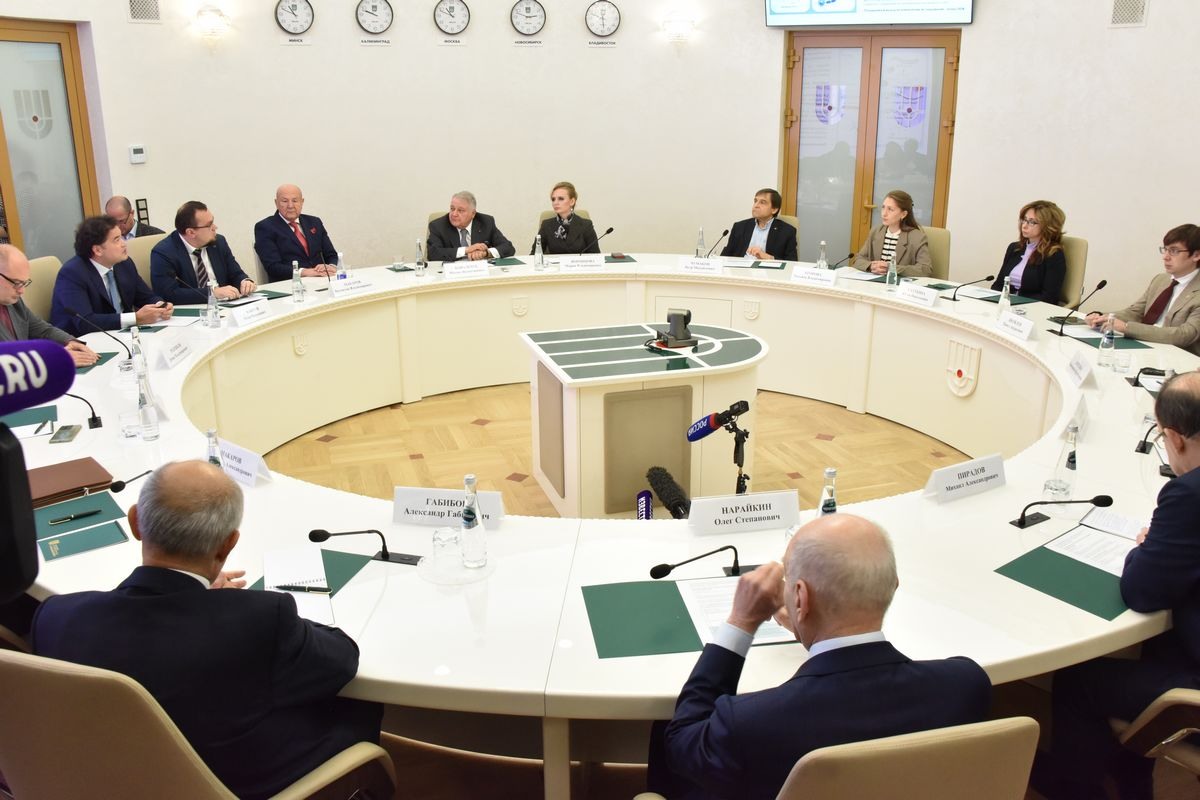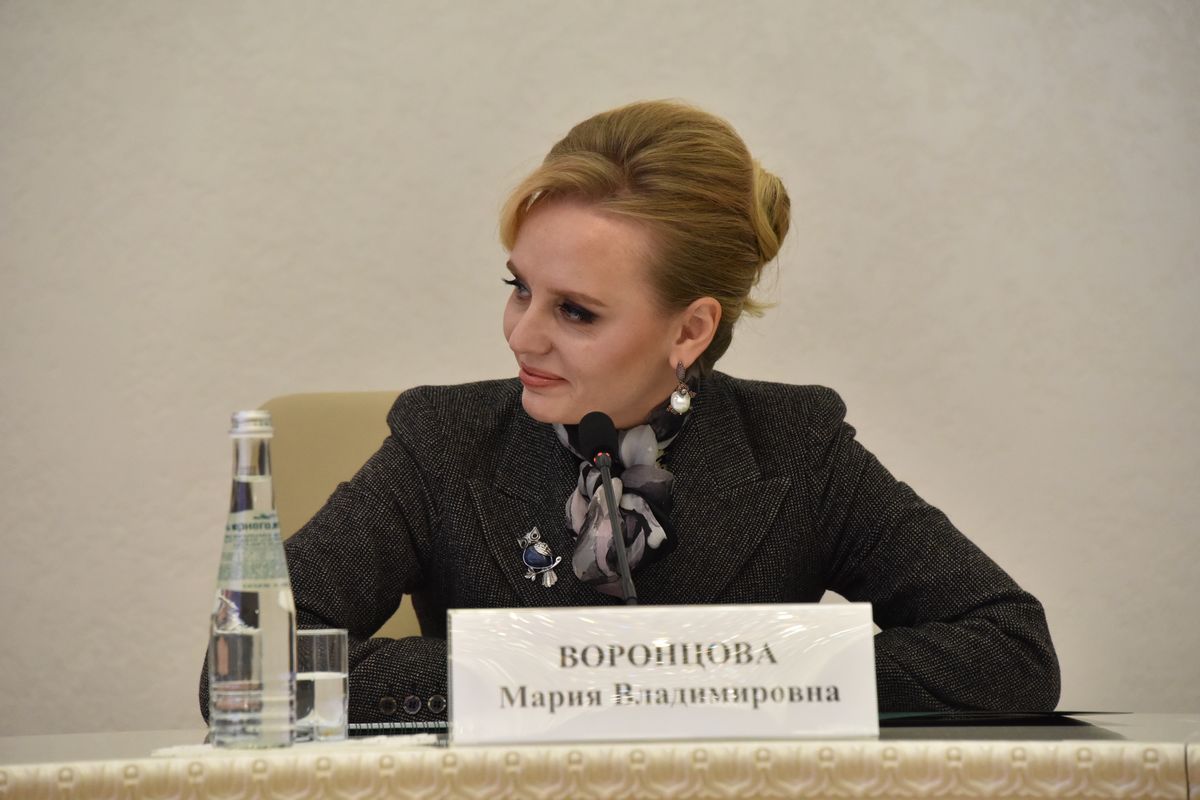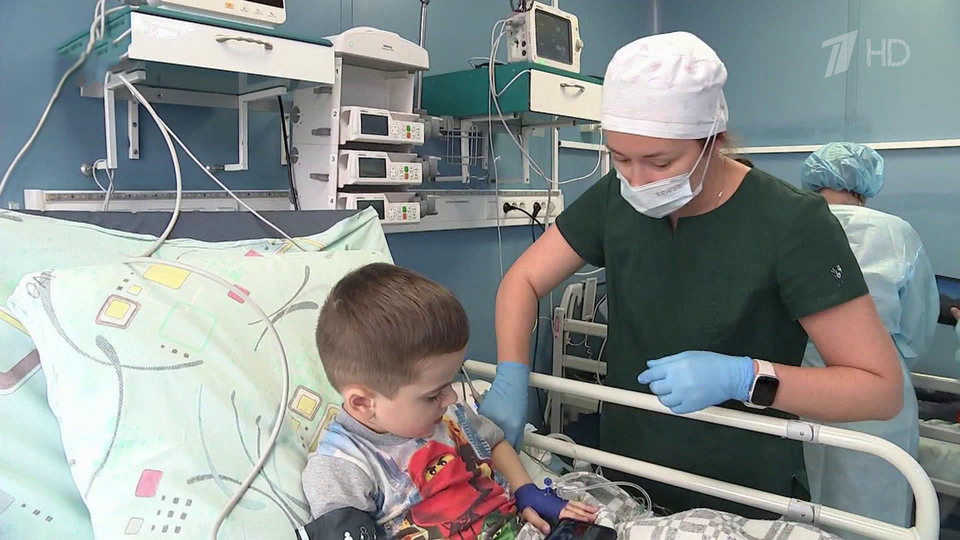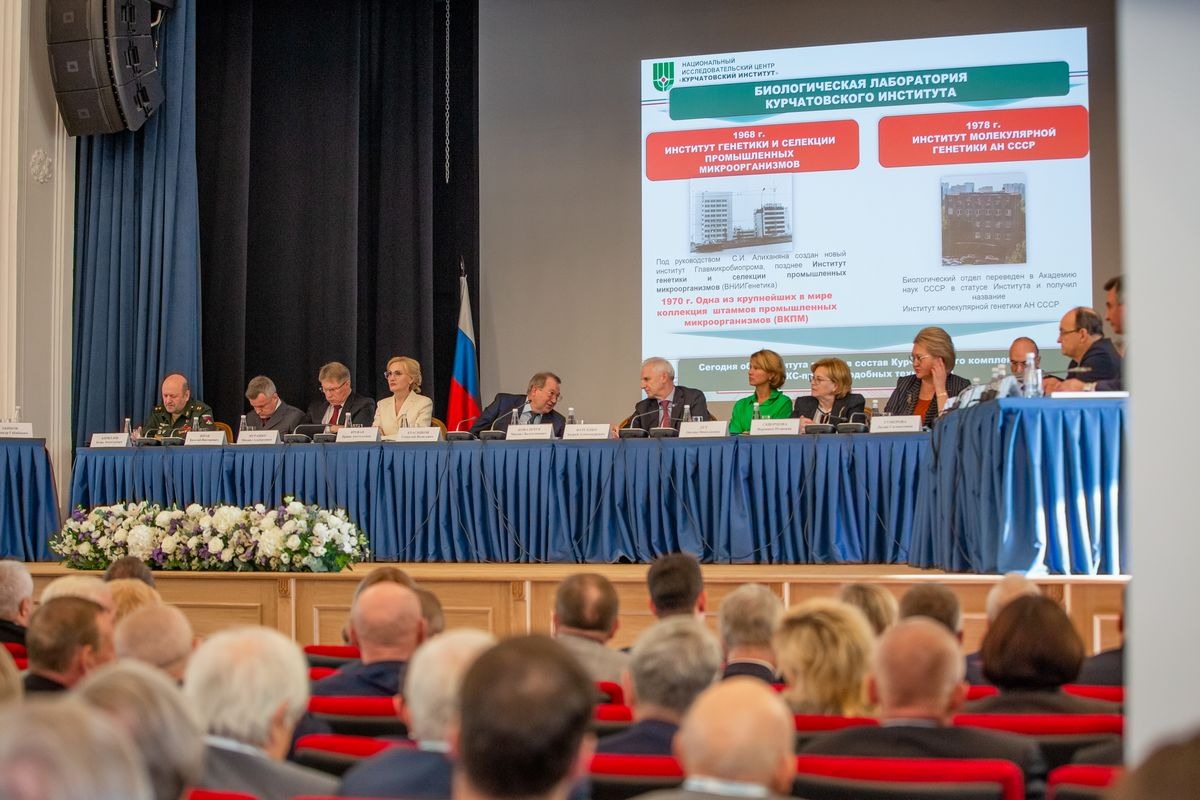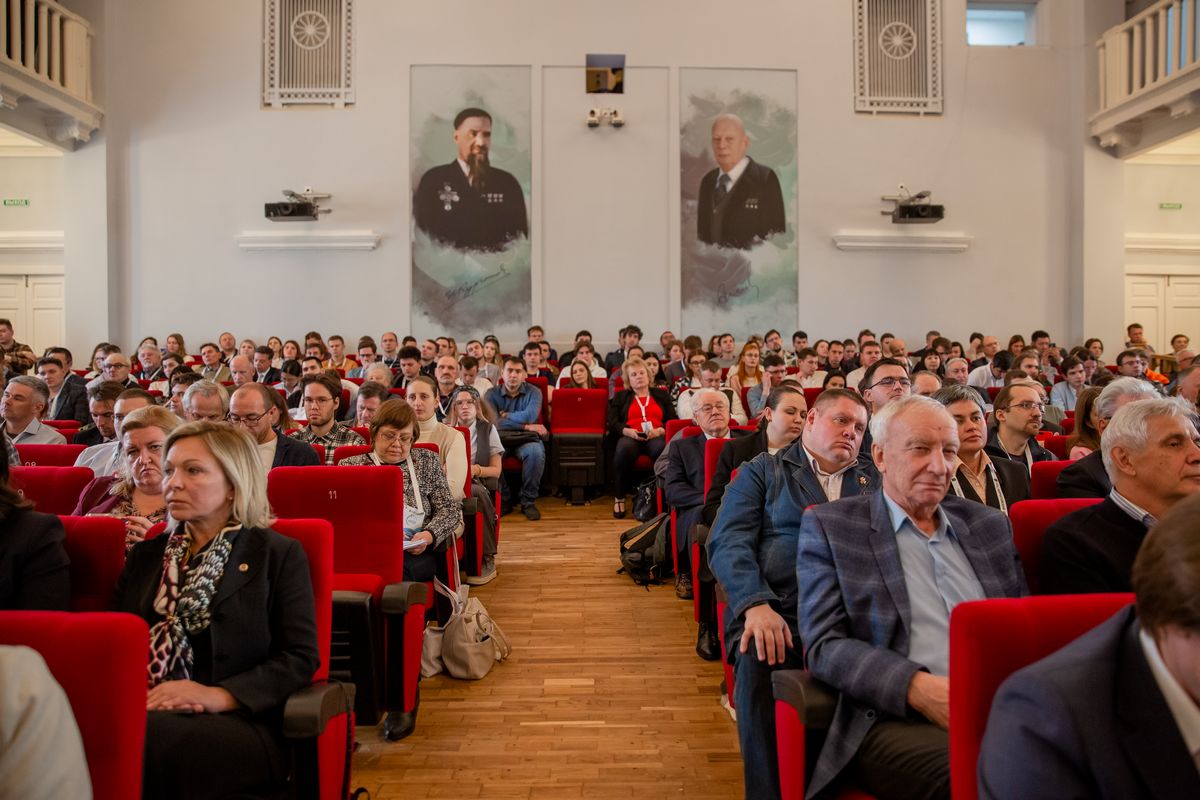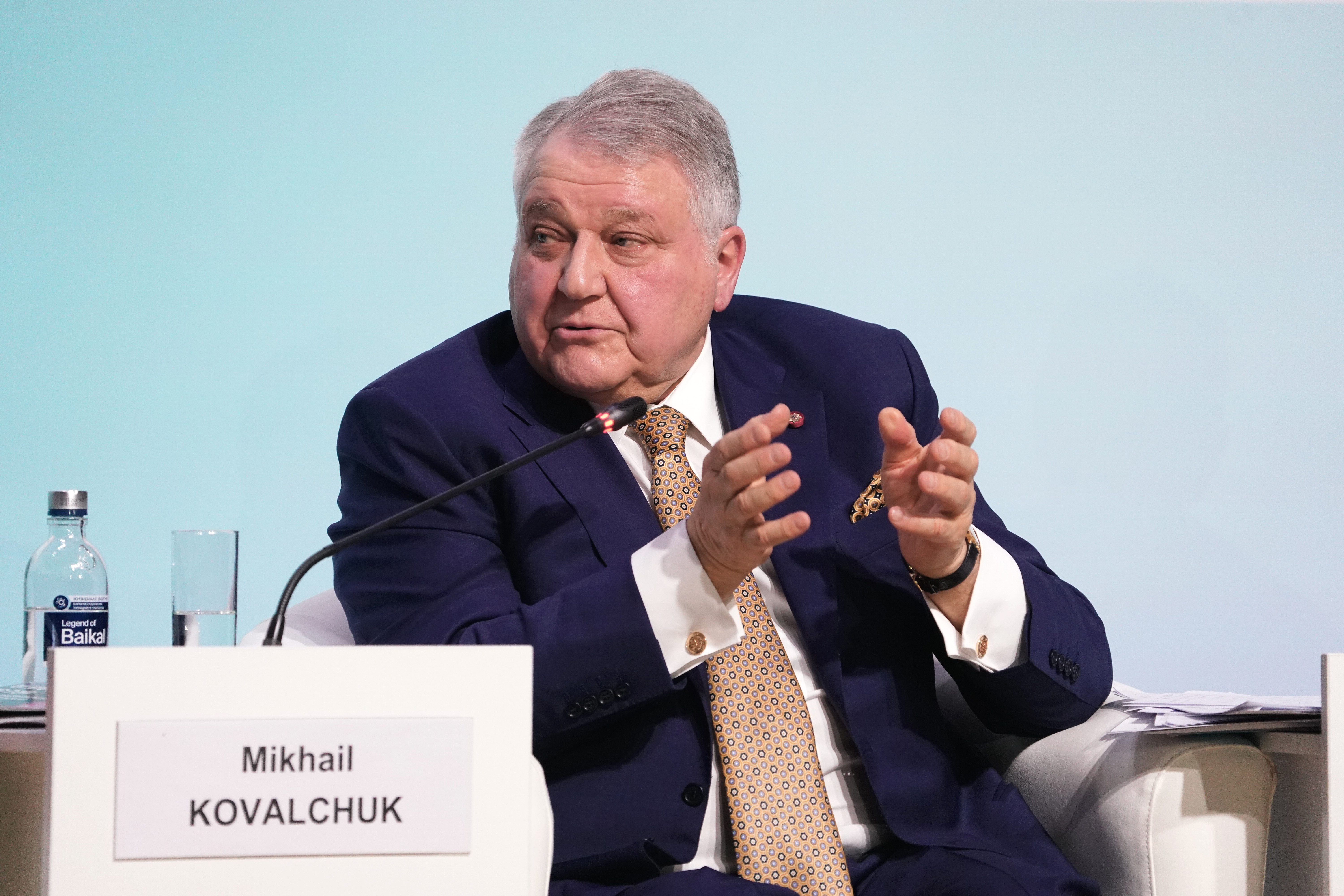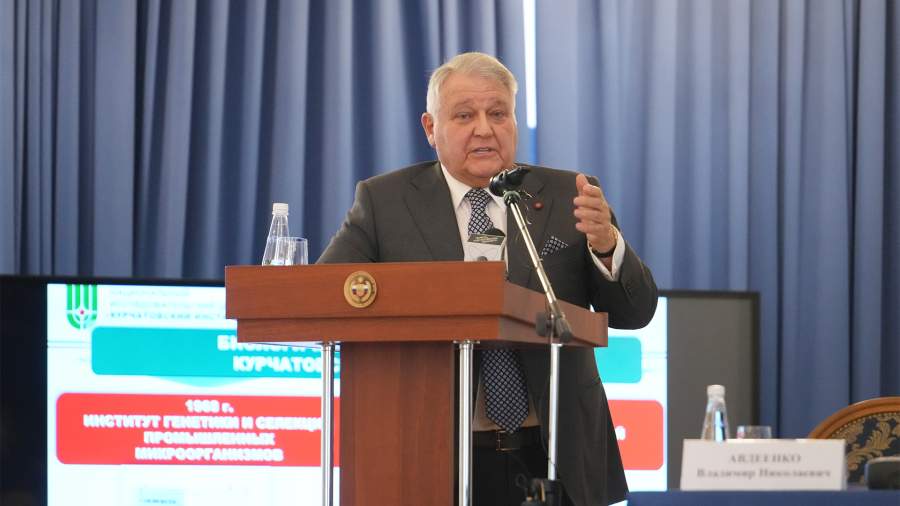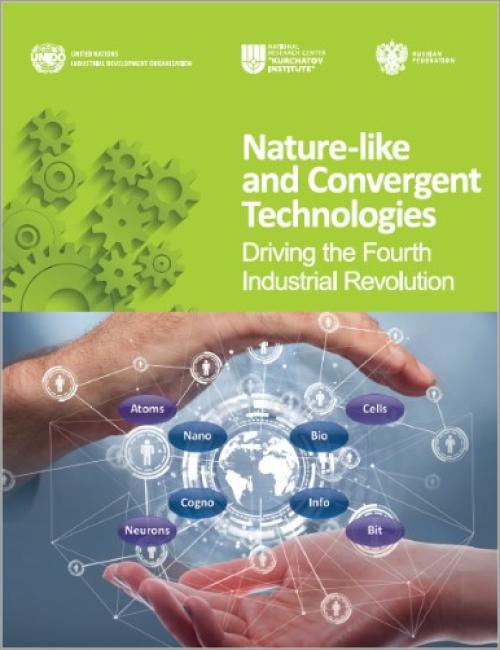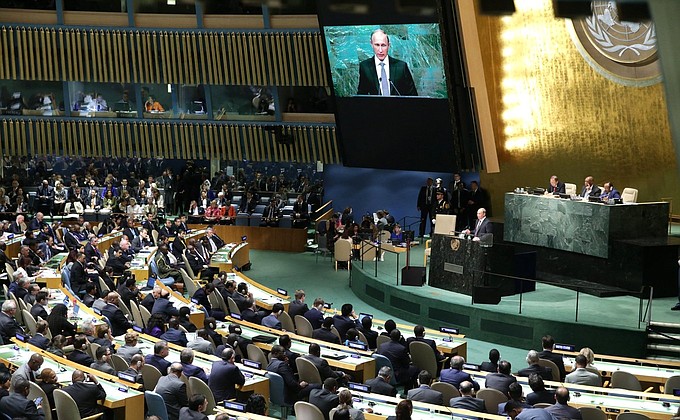Lalas
Star
- Joined
- Nov 8, 2022
- Messages
- 2,129
***

BIOPROM: Industry and Technology for Humans
International Forum | 7-8 October 2024 | Gelendzhik Arena
 biopromforum.ru
biopromforum.ru
is gaining more ground in the business and social agendas in Russia and around the world.
This approach has become the foundation of BIOPROM, a congress and exhibition platform for manufacturers and institutions developing human-oriented technologies.

THE FOCUS OF BIOPROM’24
BIOTECHMED
International Forum on Innovative Technologies in Pharmacy and Medicine


Bio-hacking
***
In all likelihood, however, this biohacking is only called that, but in fact it is something completely different, exactly the opposite of the decadent Western biohacking (as we know - "but, the Russian CBDC is for deal with sanctions and for freedom", etc., everything else), promoted by darpa-influencers such as Ray Kurzweil, Yuval, Klaus (to mention just a few of the many similar ones), And in fact, Russian biohacking is something about strengthening traditional values in the context of Christian Ortodox values.
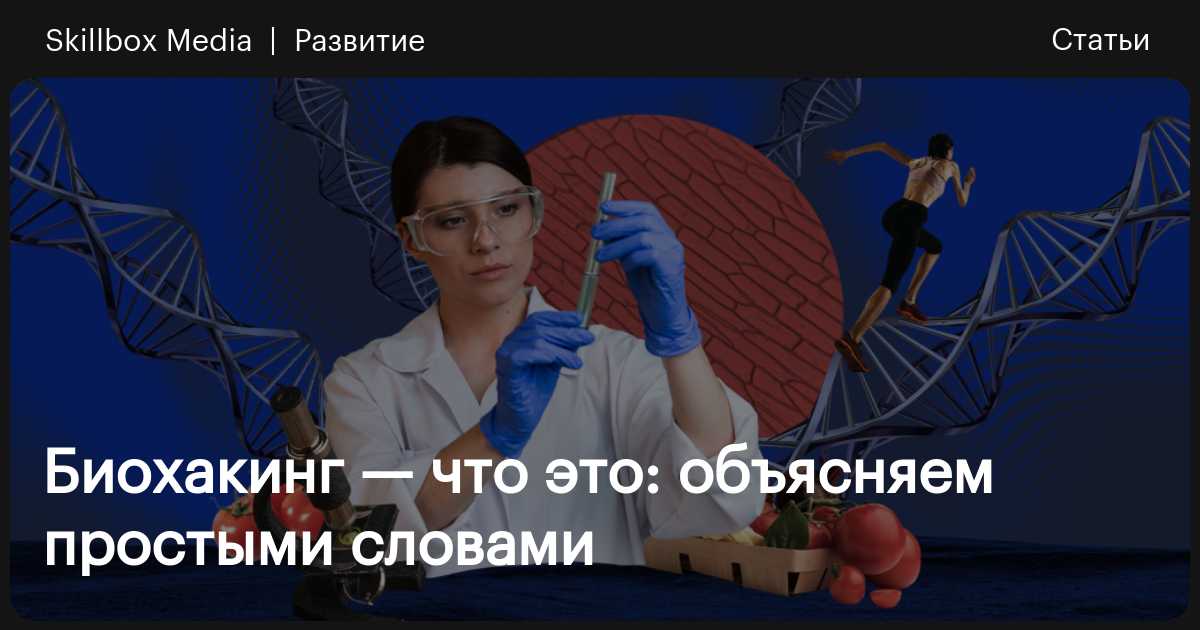
Биохакинг — что это: объясняем простыми словами
Как «взломать» организм и обеспечить себе долголетие.
Biohacking — what it is: we explain in simple words
How to "hack" the body and ensure longevity.

Alexey Repetyuk
Candidate of Medical Sciences, Associate Professor of the Department of Sports Medicine and Medical Rehabilitation of Sechenov University. Chief Specialist of the Department for the Therapeutic Use of Prohibited Substances of the Russian Anti-Doping Agency (RUSADA). Until 2022, he was the director of the medical department of FC Lokomotiv. Speaker of the joint program of Skillbox and the First Moscow State Medical University named after I.M. Sechenov "Biohacking".
What is biohacking?
Biohacking is a set of techniques for "hacking" biological processes. For example, biohacking can supposedly slow down aging, speed up metabolism, and accelerate brain activity.
..
Why do we need biohacking?
According to the precepts of biohacking, the body is a system, and everything that gets into it affects the productivity and quality of the wearer's health. Based on this, the main tasks of biohacking include:
optimization of the body's work;
slowing down the aging process;
ensuring longevity.
On the way to their "happily ever after", biohackers regularly undergo checks, exercise, develop special diets, regulate sleep patterns, and practice various ways to manage stress.
..
"Biohacking allows for an individualized approach to quality of life and productivity and treats the body as a biological machine that can be hacked and reconfigured. A person can be absolutely healthy from the point of view of medicine and a healthy lifestyle, but at the same time feel bad or have difficulty recovering from exertion, because everyone has their own norm."
ALEXEY REPETYUK
..
What tools are used in biohacking
Sergey Faguet (one of the founders of the direction in Russia) identifies six areas of interest in biohacking:
sleep hygiene;
optimal nutrition;
optimal physical activity;
mental health;
medical tests;
dietary supplements;
medication.

Tools are selected for them. Zealous supporters of the method improve their bodies with the help of chipping and implanting cybernetic devices (we will tell you which ones a little later).
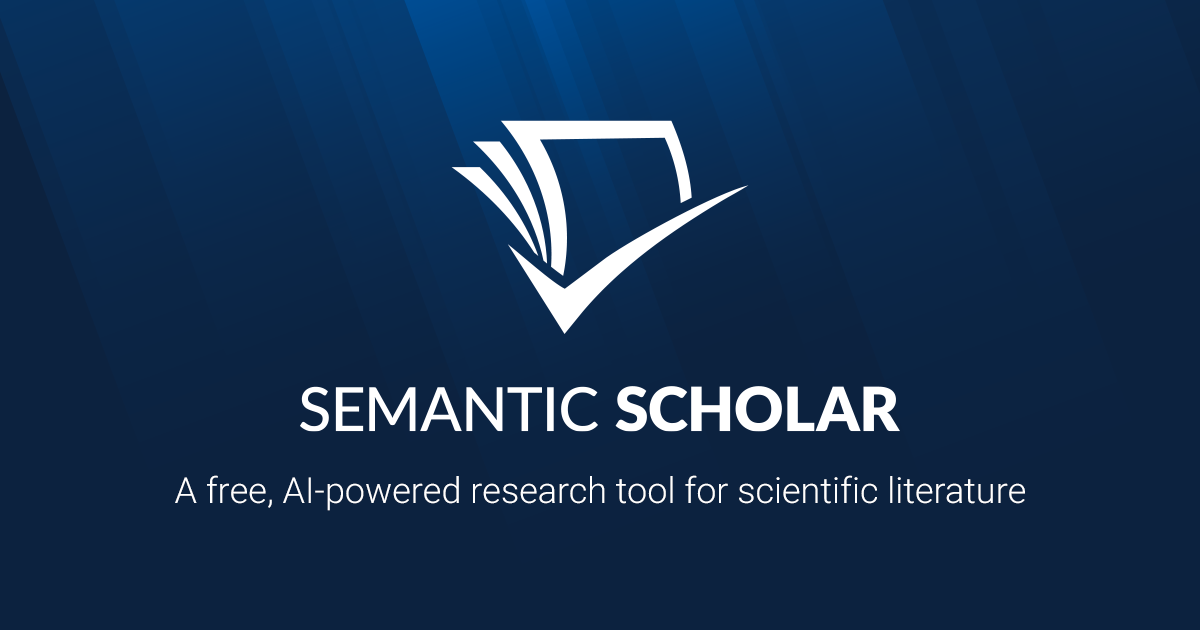
Grinder (biohacking) | Semantic Scholar
Grinders are people who apply the hacker ethic to improve their own bodies with do-it-yourself cybernetic devices. Many grinders identify with the biopunk movement, open-source transhumanism, and techno-progressivism. The Grinder movement is strongly associated with the body modification...
~
It sounds like the beginning of another cyberpunk movie, but, according to some scientists, the automation of the human body has already become part of our reality — it's time to get used to it.
Loading…
www.researchgate.net
May 2020
Authors: Harsha Gangadharbatla, University of Colorado Boulder
Wearable tech is leading way to embedded tech, i.e., implants inside the body designed to track and enhance human health and productivity among other things. Researchers have used Technology Acceptance Model (TAM) extensively to explain the factors influencing adoption of almost all technological innovations to date. Embedded tech, often referred to as biohacking, presents a unique set of factors that call for yet another revision of the model. Using diffusion of innovations, self-efficacy, and social exchange theory, a revision to the technology acceptance model is proposed with additional factors such as age and gender, embedded technology self-efficacy, perceived risk and privacy concerns to explain the adoption of embedded technologies within the human body. Data was collected through an online survey (N = 1063) using a Qualtrics panel and results suggest that age, gender, perceived usefulness, perceived ease of use, embedded technology self-efficacy, risk and privacy concerns all impact the adoption of embedded tech. Implications for the implant industry, policy makers, and researchers interested in such tech are drawn.
~
..
In addition to the usual vitamins and dietary supplements, biohacking actively uses "smart drugs" and nootropics, which increase the efficiency of the brain.

The ABC’s of Biohacking - Sogeti Labs
Start-ups, technology companies, and entrepreneurs are faced with competition and the need to stay relevant by creating and delivering value. As the marketplace becomes crowded with talent and ambition, many individuals are turning to “biohacking” in order to stand out, increase performance, and opt
What are the areas of biohacking?
There are several areas of biohacking, but there are three approaches to the basic ones.
Approach one: grinder
Its representatives are also called cyborgs of our time. Proponents of this method transform themselves through the introduction of chips and implants into bodies.

Grinder (Biohacking)
Grinders are people who apply the hacker ethic to improve their own bodies with do it yourself cybernetic devices or introducing Biochemicals into the bo...
Some biohackers implant chips that can record and transmit biometric data (for example, glucose levels). Or they install magnets on their fingertips: according to the idea, the movements and vibrations of the magnets transmit information about the world to the brain.
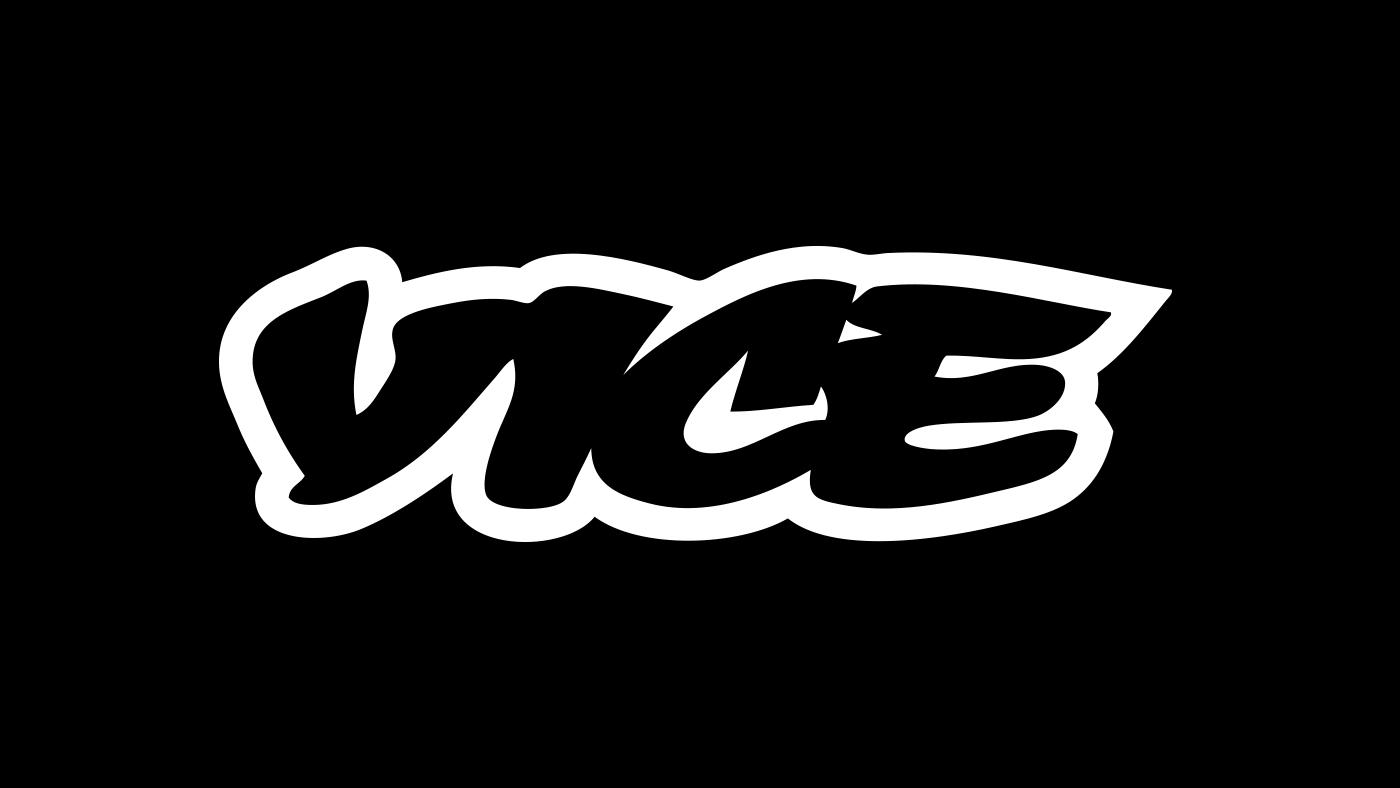
The DIY Cyborg
Humanity just made a large, DIY step towards a time when everyone can upgrade themselves towards being a cyborg.
The creators of this know-how promise that in about 2-3 weeks, the brain will begin to process sensory data in a new way, reading the magnetic fields of surrounding objects.

Biomagnets enhance the human experience
Implantable magnets (biomagnets) are interesting type of upgrade. With a biomagnet implanted you can interact with the world in new exciting ways! Not
 dangerousthings.com
dangerousthings.com
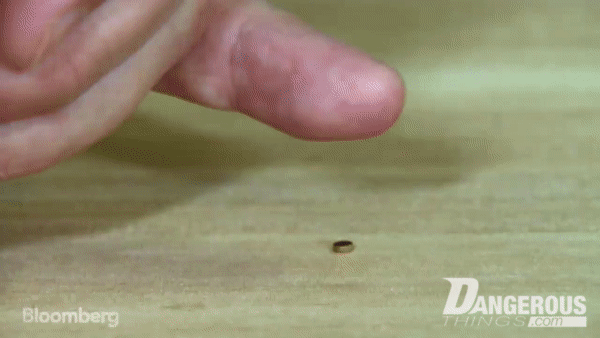
..
Approach Two: Nutrigenomics
It studies the effect of food on gene function and health in general. Studies show that the need for personalized nutrition is growing, so nutrigenomics is in the process of being actively studied. ..
..
Approach Three: DIY Biology
Or "biology with your own hands". In this approach, the main goal is to popularize science. To do this, scientists share knowledge in biology and information about available alternatives to laboratory equipment, and tell how to conduct experiments at home. ..
..
Who will benefit from knowledge of biohacking?
Knowledge in the field of biohacking will be useful to specialists in various fields:
doctors;
beauticians;
nutritionists;
fitness trainers;
bloggers and media personalities (a promising topic for building an audience);
psychologists (for lovers of technology and innovation, biohacking can be a motivation to maintain a healthy and caring attitude towards oneself).
Also, the study of biohacking is relevant for those who are in search of a new profession. Biohacking is one of the top 5 technological trends that will shape the health services market in the future.
GWI partner research: GDI Releases Research Report: “Wellness 2030" - Global Wellness Institute
Media Contact: Beth McGroartybeth.mcgroarty@globalwellnessinstitute.org • +1.213.300.0107 Gottlieb Duttweiler Institute Releases Research Report: “Wellness 2030 – The New Techniques of Happiness” Leading Swiss think-tank reveals how future technologies of self-optimization will completely...
 globalwellnessinstitute.org
globalwellnessinstitute.org
What books about biohacking to read
The following books are suitable for getting acquainted with the biohacking movement:
"Brain Biohacking. A Proven Plan to Maximize Your Brain Boost in Two Weeks by Dave Asprey;
"Smart biohacking: 8 facets of a full life. How to Become Healthy, Young and Energetic in 40 Days", Sarah Gottfried;
"Biohacking without fanaticism. How to Live a Long Full Life", Ilya Mutovin;
"Nutrition of a biohacker. How to Eat to Be Efficient and Slow Down Aging", Ekaterina Shcherbakova;
"Intelligent biohacking of Homo Sapiens: the physical body and its laws", Konstantin Zabolotny.
..
The use of useful gadgets and modern services is also welcome in biohacking. These can be meditation apps, fitness bracelets, sleep monitors, devices for fixing biomarkers.
The latter include, for example, the Oura ring, a fitness tracker that is equipped with high-tech sensors. The device works in tandem with the app and monitors, for example:
pulse rate;
Temperature;
the level of oxygen in the blood;
the number of steps;
heart rate;
feeling of tension or recovery;
phases of deep and light sleep.
..
Biohacking as an individual and comprehensive approach to health and self-knowledge can have a positive impact on people's relationship with their bodies. But remember that any intervention in the body and health should take place under the strict supervision of doctors.

Biohacking
The program of additional professional education was developed by the First Moscow State Medical University named after I. M. Sechenov. You will master a scientific approach to longevity and slowing down the aging process. You will be able to improve your health and appearance, gain a slim and toned figure, increase personal efficiency and achieve your goals faster. You will learn how to monetize new knowledge for better professional results.
Learn more

Дополнительное профессиональное образование по биохакингу от Skillbox и МГМУ им. Сеченова
Дистанционное обучение биохакингу с дипломом Первого МГМУ им. И. М. Сеченова. Вы научитесь понимать физиологию и биохимию человека на разных этапах жизни, изучите перспективные исследования в области здорового старения, увидите влияние полноценного питани



Biohacking
Joint program with the First Moscow State Medical University named after I.M. Sechenov
You will master a scientific approach to longevity and slowing down the aging process. You will be able to improve your health and appearance, gain a slim and toned figure, increase personal efficiency and achieve your goals faster. You will learn how to monetize new knowledge for better professional results.
..
What is biohacking?
Biohacking is a set of scientifically proven techniques. They help slow down aging, as well as improve the health of the body, mental health, and brain.
You don't have to be a doctor to practice biohacking, but you need to know how the human body works.
A biohacking specialist identifies individual indicators of aging, markers of biological age, and longevity factors. Then, he creates personal anti-aging strategies: they are also called preventive strategies.
..
Partnership
The theoretical and practical part of the program was composed by experts from the I.M. Sechenov Moscow State Medical University and the Federal Research Center of Nutrition and Biotechnology.
First Moscow State Medical University named after I. M. Sechenov
One of the best medical universities in Russia according to Times Higher Education*. More than 30 thousand doctors study and improve their skills here. 85% of teachers have an academic degree.
*Global ranking of the best universities from Times Higher Education magazine. One of the most authoritative in the world.
***

BIOPROM: Industry and Technology for Humans
International Forum | 7-8 October 2024 | Gelendzhik Arena
 biopromforum.ru
biopromforum.ru
is gaining more ground in the business and social agendas in Russia and around the world.
This approach has become the foundation of BIOPROM, a congress and exhibition platform for manufacturers and institutions developing human-oriented technologies.

THE FOCUS OF BIOPROM’24
BIOTECHMED
International Forum on Innovative Technologies in Pharmacy and Medicine


Bio-hacking
***
Greetings on the opening of the Bioprom: Industry and Technology for Humans International Forum
Vladimir Putin sent his greetings to the participants, orgranisers, and guests of the Bioprom: Industry and Technology for Humans International Forum.
The message reads, in part:
“I believe that your forum, which has brought together officials, heads of large companies and scientific centres in Gelendzhik, is an important and much-needed initiative. The issues that will be discussed there have great national importance. I refer to the widespread, universal introduction of innovative technologies in the production of medical products, the food industry and agriculture. These areas can help improve the health, quality of life and well-being of people, as well as enhance the environmental situation in the country.
I am confident that the forum will be held in a creative, constructive spirit, fostering business and professional contacts and the launch of new promising projects.”
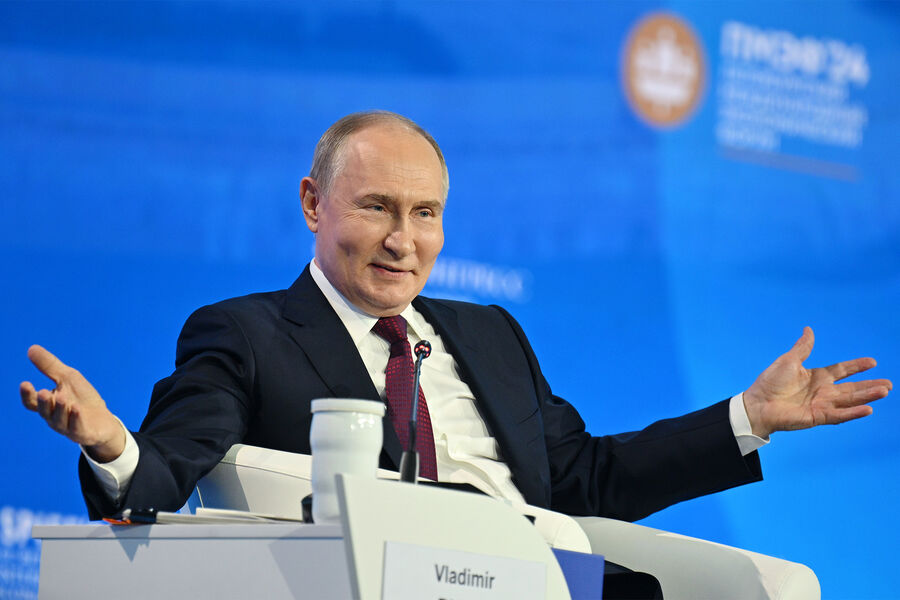
В Нигере поздравили Путина рэпом - Газета.Ru | Новости
Музыканты и танцоры из Нигерии записали рэп-поздравление президенту России Владимиру Путину по случаю его дня рождения. Об этом ТАСС сообщил директор Русского Дома Белло Иссуфф.
Musicians and dancers from Niger recorded a rap greeting to Russian President Vladimir Putin on the occasion of his birthday. This was reported to TASS by the director of the Russian House Bello Issuff.
"The people of Niger really approached the congratulations very creatively. Rap, created under the direction of the talented Nafiy Salissou, reflected not only respect for the Russian leader, but also our music, our culture. The rap was performed by singer Messier Yaro, and the dance part was presented by the Sahel 24 group," Issuff said.
The congratulatory song was called "Vladimir Putin rules". It sings in French about the work of the Russian leader aimed at improving the well-being of the people.
On October 7, the President of Russia celebrates his 72nd birthday.
Last edited:

